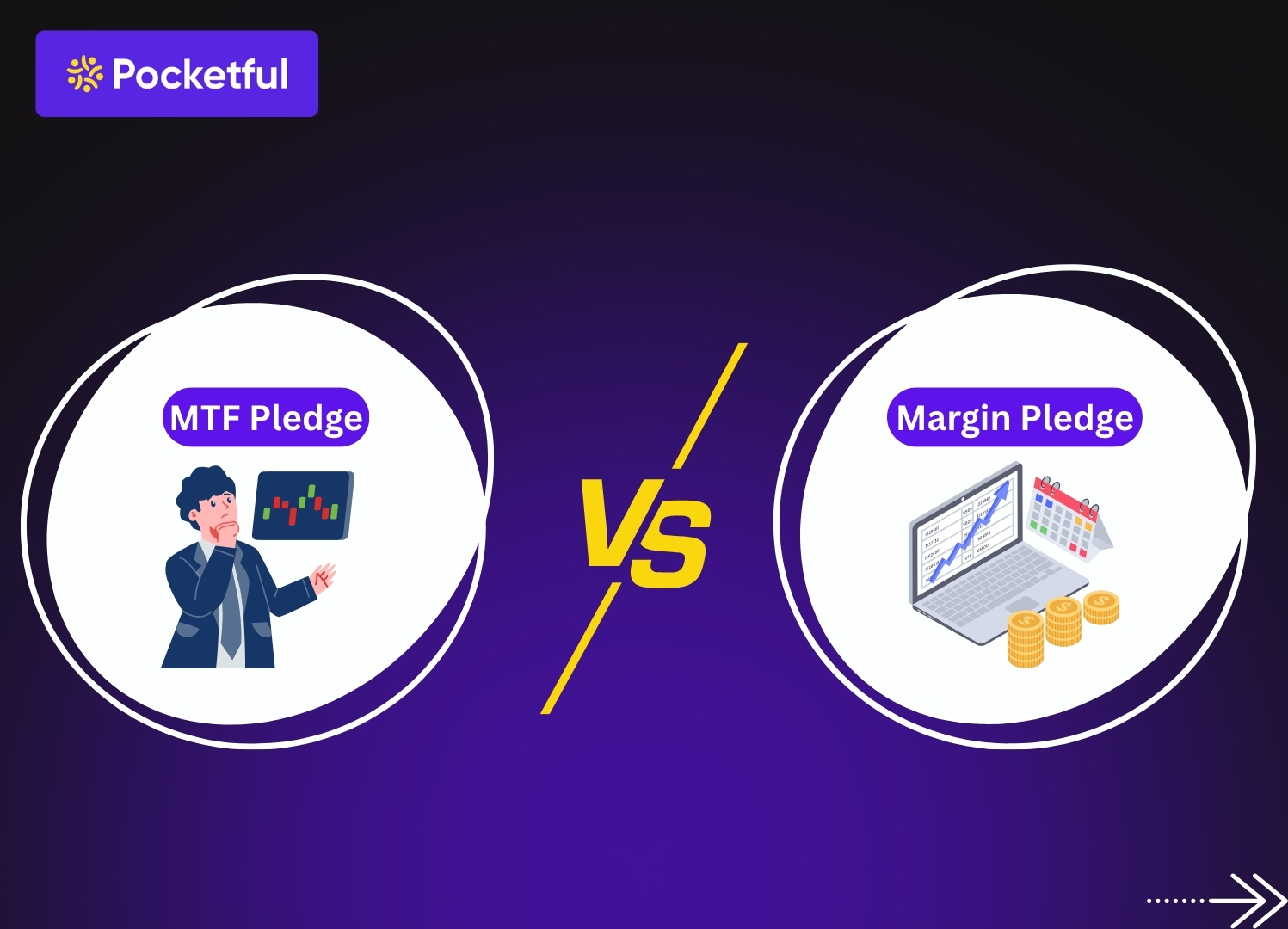India’s defense budget increased rapidly in 2025 and this is why defense sector mutual funds have become a big topic of discussion among investors today. If you want to know which is the best defense mutual fund or what is the complete defense mutual fund list, then this guide is for you. Here we will understand how mutual funds investing in the defense sector can bring long-term strength to your portfolio and why mutual funds in the defense sector are being considered as an emerging opportunity nowadays.
What are Defence Sector Mutual Funds?
Defence Sector Mutual Funds are mutual funds that invest primarily in defence and related industries. These include companies involved in aerospace, weapon manufacturing, engineering, electronics and defence equipment. In simple terms, these are mutual funds investing in the defence sector that directly bet on companies whose business is related to defence.
These funds fall under the category of sectoral/thematic funds, which is recognized by SEBI (Securities and Exchange Board of India). This means that their investment is focused on a single sector, while diversified equity funds invest in many different industries. The main objective of these funds is to take advantage of the long-term opportunities provided by India’s growing defence needs and the Atmanirbhar Bharat initiative. It is important to note that since these are mutual funds in the defence sector, they also carry higher risk, and investors should always consider these funds from a long-term perspective.
Defence Sector Mutual Funds List 2026
| Fund Name | Current Nav | AUM | 6M Returns | 1 year Return |
|---|---|---|---|---|
| Motilal Oswal Nifty India Defence Index Fund | ₹ 10.25 | ₹3,703.3 Cr | 27.23% | 19.49% |
| HDFC Defence Fund | ₹ 24.38 | ₹7,024.99 Cr | 26.18% | 11.67% |
| Aditya Birla Sun Life Nifty India Defence Index Fund | ₹ 11.41 | ₹721.82 Cr | 27.01% | 18.97% |
| Groww Nifty India Defence ETF FoF Direct Growth | ₹ 11.70 | ₹78.84 Cr | 26.38% | 16.95 |
1. Motilal Oswal Nifty India Defence Index Fund
This fund invests in leading companies in India’s defence sector. Its minimum SIP starts from ₹500 and the fund manager is Swapnil P Mayekar. The top holdings of this fund include Bharat Electronics Ltd. (20.6%), Hindustan Aeronautics Ltd. (20.46%), Solar Industries India Ltd. (11.54%), Bharat Forge Ltd. (11.50%), and Mazagon Dock Shipbuilders Ltd. (7.46%). Due to the strong growth of the defence industry and government support, this fund can be a good option for long-term investors.
2. HDFC Defence Fund
HDFC Defence Fund is managed by Priya Ranjan and it invests directly in defence and related capital goods companies. The fund’s key holdings includeBharat Electronics Ltd. (18.88%), Hindustan Aeronautics Ltd. (15.21%), Solar Industries India Ltd. (11.67%), Bharat Forge Ltd. (9.58%), and BEML Ltd. (8.83%). Apart from this, companies like Bharat Forge and Premier Explosives are also part of the portfolio. This fund is an ideal choice to capture direct growth of the defense sector.
3. Aditya Birla Sun Life Nifty India Defence Index Fund
This fund also focuses on defense sector companies and is managed by Priya Sridhar. The minimum SIP starts from ₹500. Bharat Electronics Ltd. (21.24%), Hindustan Aeronautics Ltd. (21.10%), Solar Industries India Ltd. (14.83%), Mazagon Dock Shipbuilders Ltd. (8.72%), and Cochin Shipyard Ltd. (6.01%). This fund covers key stocks in the defense industry and is a better option for investors looking for index-based options.
4. Groww Nifty India Defence ETF FoF Direct Growth
This fund is managed by Akash Chauhan and its SIP starts from just ₹500. This fund invests 100% in Groww Nifty India Defence ETF, i.e. it directly tracks the performance of the defense sector index. Investors who do not want to invest directly in ETFs can take advantage of the growth of the defense sector through this fund of funds (FoF). This is a new and simple option, especially for beginner investors.
Read Also: Best Thematic Mutual Funds in India
Why Defence Sector Mutual Funds are Gaining Popularity
- India’s Defence Investments at an all-time high : The Union Budget 2025–26 has allocated ₹6.81 lakh crore for the Defence sector, an increase of about 9.5% from last year and accounting for about 13.5% of the total budget. This huge investment has made defence sector mutual funds an attractive option.
- Make in India + Export Expansion : India recorded an 18% growth in defence production in 2024–25, reaching ₹1.50 lakh crore. Also, defence exports reached ₹23,622 crore, a 12% year-on-year growth with the private sector contributing ₹15,233 crore. This provides a strong foundation for the “Make in India” and “mutual funds investing in defence sector” themes.
- Geopolitical tensions and global demand : International conditions and security challenges have accelerated the pace of warfare technology and defence production. For example, manufacturers such as Solar Group are increasing production of 155 mm ammunition amid the Russia–Ukraine conflict.
- Good performance of defense companies in the stock market : Hindustan Aeronautics Limited (HAL), Bharat Electronics Ltd (BEL), Bharat Forge and other defense companies have performed well in recent years, which is a positive sign for investors looking for the best defense mutual fund.
Advantages of Investing in Defence Sector Mutual Funds
The government’s Make in India initiative, growing defence exports, and cutting-edge technology innovations have made it attractive for investors in the long run. At such a time, investing in defence sector mutual funds can prove to be a wise move. These funds not only provide an opportunity to invest in companies that contribute to national security, but also strengthen investors’ portfolios.
- Strong growth potential : India’s defence budget is constantly increasing and with it, new deals and projects are increasing in the industry. For example, companies like Hindustan Aeronautics, Bharat Electronics and Solar Industries are expanding rapidly. By investing in these funds, you can directly benefit from the growth of this sector.
- Stable investment for the long term : The defence sector is not a short-term investment theme. This sector will grow in the long run, as there is continued government and private investment. Such funds provide investors with an opportunity for stable and long-term returns.
- Diversification in portfolio : Through these funds, you can invest in both government (PSU) and private defense companies. This diversifies your investment and balances the risk.
- Benefit from government policies and incentives : Increasing FDI limit by the government, promoting local manufacturing and giving policy incentives for the defense sector is continuously strengthening this sector. Investing in such an environment can prove to be beneficial in the long run.
- Long term wealth creation : If investors stay patient for a long time, then these funds can give good capital appreciation and returns. Continuously increasing government and private investments strengthen the companies of this sector, giving long-term benefits to the investors.
Read Also: List Of Best Defense Stocks in India
Risks & Challenges Investors Should Know
Defence sector mutual funds are attractive, but it is important to understand the risks involved. If you want to invest in these funds, pay attention to the following five key aspects:
- Risk of centralised investing : Defence funds often invest in just a few large companies, such as Hindustan Aeronautics and Bharat Electronics. If there is any instability in these companies, the entire fund can be affected. Therefore, it is important to understand that your money is concentrated on the entire sector, not individual industries.
- Dependence on government policies : The defence industry is dependent on government policies and budgets. If the defence budget is reduced or new deals are delayed, the earnings of companies can be affected and your fund’s returns can also be low.
- High valuation of stocks : Defence sector stocks have risen rapidly in the last few years. This means that their valuations (P/E or P/B) are high. In such a situation, future returns may be limited and prices may fall during market correction.
- Global and geopolitical risks : The defense sector is affected by international events. Wars, agreements or international tensions can directly affect the orders and supply chain of companies. At such times, investors are likely to incur losses.
- Investor advice : If you are a retail investor, invest only 5–10% of your portfolio in defense funds. Invest for the long term and be patient. This will balance the risk and increase the chances of getting better returns.
Read Also: Types of Mutual Funds in India
Conclusion
Defense sector mutual funds are a good option for those who want to earn good returns by investing for a long time. These funds invest primarily in large defense companies of India and strengthen the portfolio. Keep in mind, being a sector-focused investment, there are some risks and global events can have an impact.
Frequently Asked Questions (FAQs)
What are defence mutual funds?
These are funds that invest in India’s defence and related sector institutions.
Who should invest in defence mutual funds?
These funds are ideal for investors with a long-term investment horizon and a moderate risk appetite.
What is the minimum SIP to start with?
Most funds have a minimum SIP starting at ₹500.
Are these funds risky?
Yes, as these are focused on a single sector, they come with higher risk.
Can these funds give high returns?
These can give good returns in the long term, especially when the sector players are performing well.










